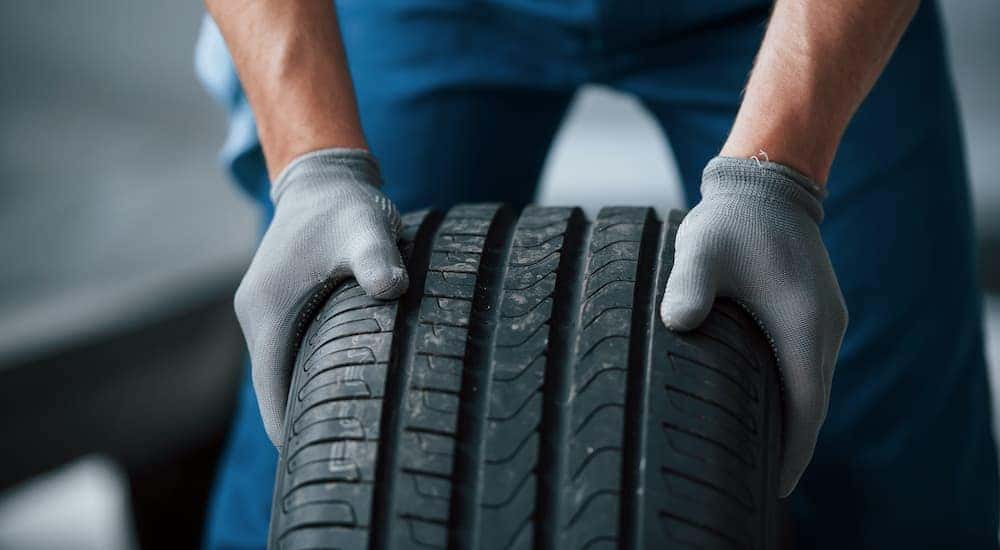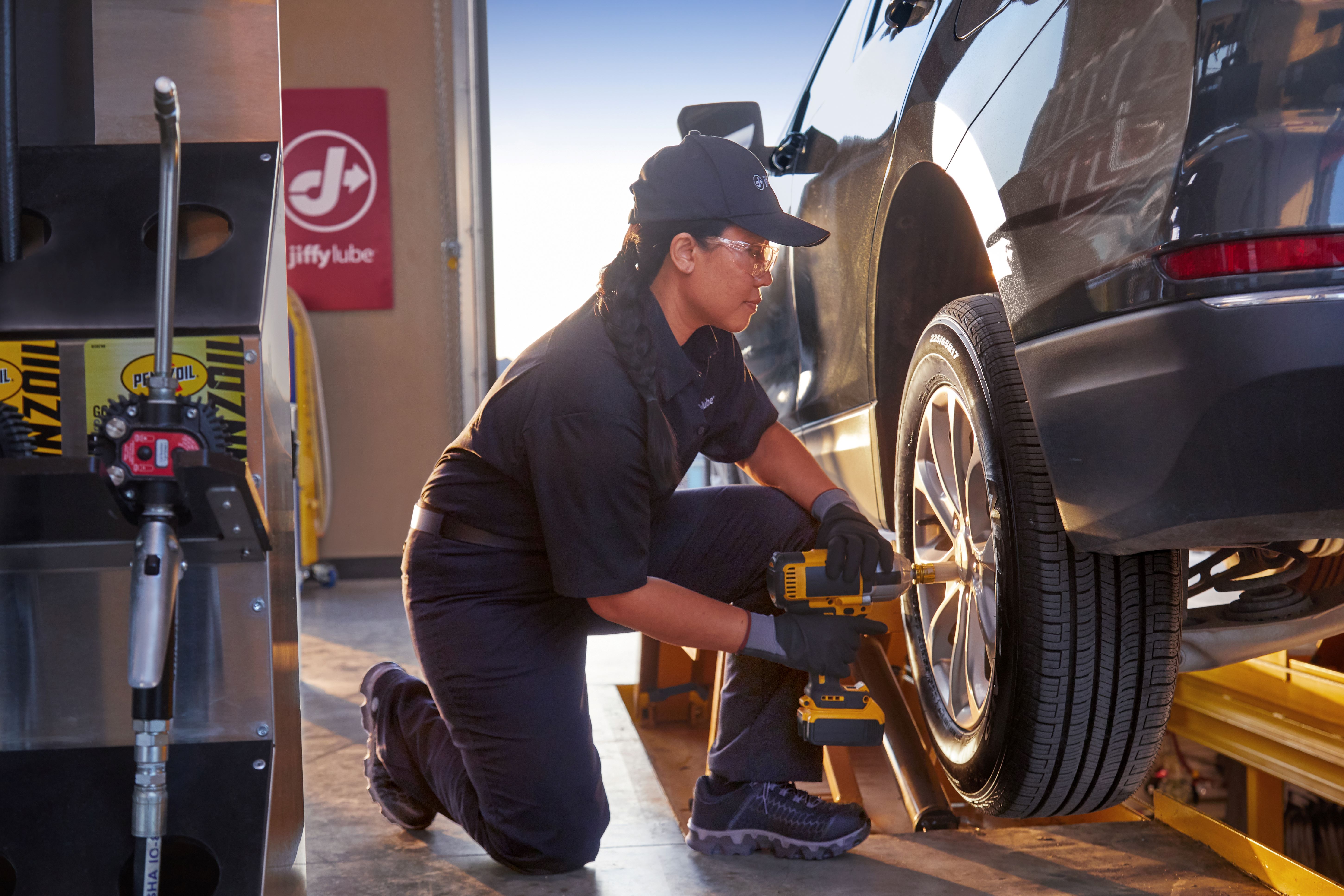Morris Tire: Exceptional Tire Solutions for All Cars
Morris Tire: Exceptional Tire Solutions for All Cars
Blog Article
The Link In Between Tire Solution and Fuel Performance
Effectiveness in fuel intake is a critical issue for lorry proprietors seeking to optimize their driving experience. Amongst the different variables that affect fuel effectiveness, tire service attracts attention as an essential component that commonly goes ignored. The elaborate relationship in between tire maintenance and gas economic climate is a testimony to the elaborate workings of a lorry. By recognizing just how tire treatment directly affects the performance of your car, you can unlock a world of opportunities that not just enhance performance however additionally add to set you back savings in the long run.
Significance of Appropriate Tire Inflation
Proper tire rising cost of living is a critical variable in making the most of fuel efficiency and ensuring optimum vehicle performance. On the other hand, overinflated tires can lead to a harsher ride, uneven tire wear, and lowered grip - morris tire.
Preserving the right tire stress not just improves fuel effectiveness yet additionally enhances driving security. On a regular basis checking and adjusting tire pressure, particularly in the past long trips, is a basic yet reliable means to maximize your vehicle's fuel economic climate and make certain a smooth driving experience.
Impact of Tire Tread Depth
Preserving the recommended tire pressure is crucial for optimal automobile efficiency and gas efficiency; likewise, the step deepness of your tires plays an important duty in guaranteeing safety and grip when driving. Tire step deepness directly impacts the ability of your tires to grasp the roadway surface, particularly in wet or unsafe problems. As tires put on down, their step depth reductions, impacting their ability to channel water away and maintain proper call with the roadway. The suggested minimum tread deepness is typically 2/32 of an inch, but for boosted safety and security and performance, numerous professionals recommend transforming tires before they reach this point. Correct walk depth not just ensures better handling and braking however likewise contributes to fuel efficiency by lowering rolling resistance. Frequently checking your tire walk deepness and replacing tires when required is a simple yet reliable method to promote both security and fuel effectiveness on the roadway.
Role of Wheel Placement in Performance
Guaranteeing exact wheel positioning is vital for enhancing lorry performance and optimizing gas economic situation. Appropriate wheel positioning entails readjusting the angles of the wheels to maker specs, guaranteeing that they are alongside each various other and vertical to the ground. When wheels are misaligned, it can result in uneven tire wear, raised moving resistance, and decreased gas effectiveness.

Furthermore, precise wheel placement can additionally improve handling and stability, reducing the amount of energy required to steer the vehicle (discount tires morris il). By lessening unnecessary friction and drag, proper wheel alignment plays an important function in improving general car efficiency and fuel economy. Normal wheel placement checks and changes are crucial for keeping ideal performance and making the most of fuel financial savings
Link Between Tire Upkeep and MPG
A necessary facet of maximizing fuel effectiveness in lorries is the upkeep of tires and their direct effect on miles per gallon (MPG) Appropriate tire maintenance plays a crucial duty in maximizing fuel economic situation. One vital factor impacting MPG is tire stress. Underinflated tires raise rolling resistance, creating the engine to function more difficult and shed more gas. On the other hand, overinflated tires reduce the call patch with the road, bring about uneven wear and decreased fuel performance. Routinely examining and maintaining the proper tire pressure can dramatically improve MPG.
Furthermore, tire step depth likewise affects fuel performance. By making sure tires have adequate tread depth, drivers can enhance both security and fuel economy.
Essentially, correct tire maintenance, including tracking tire stress and step deepness, is straight connected to achieving ideal MPG. By integrating normal from this source tire inspections and upkeep right into a vehicle treatment regimen, chauffeurs can not just expand tire life however likewise enhance gas performance, inevitably conserving cash and reducing ecological effect.

Tips for Fuel-Efficient Tire Care
Offered the important relationship between tire upkeep and fuel efficiency, implementing efficient methods for enhancing tire treatment is essential to improving total vehicle performance. To make certain fuel-efficient tire treatment, regular tire pressure checks are crucial. Properly inflated tires reduce rolling resistance, boosting gas performance and prolonging tire life-span. In addition, preserving appropriate wheel positioning and balancing helps distribute weight evenly, preventing irregular tire wear and maximizing gas usage. Turning tires at recommended periods advertises also walk wear, enhancing fuel performance by making sure all tires contribute equally to vehicle efficiency. It is additionally vital to check tires for signs of damages, such as cuts, slits, or bulges, as these issues can impact gas performance and general safety. Lastly, picking tires with reduced rolling resistance can significantly improve gas economic situation. By integrating these fuel-efficient tire treatment pointers into a routine upkeep routine, chauffeurs can take full advantage of fuel great site efficiency, lower running expenses, and prolong the life of their tires.
Conclusion
By regularly keeping tires and following fuel-efficient tire treatment tips, chauffeurs can maximize their car's efficiency and minimize fuel intake. It is important to prioritize tire upkeep to not just save money on fuel costs yet likewise to promote total lorry performance.
Report this page